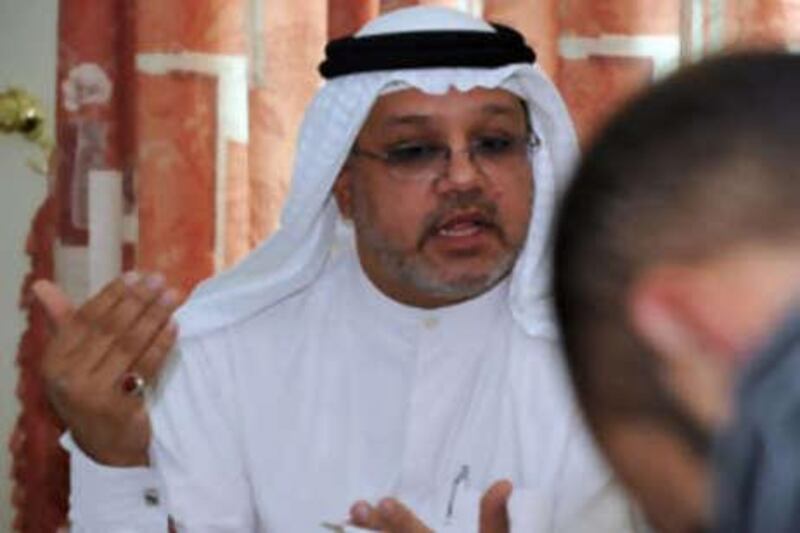MANAMA// The Bahraini parliament's largest opposition Shiite bloc, Al Wefaq, said yesterday it plans to propose drastic modifications to the country's anti-terror bill when the parliament reconvenes next month. The bill, which was approved in the summer of 2006, received criticism from local and international rights groups including the UN, mainly due to the widespread powers given to government law enforcement agencies to detain and prosecute suspects. Jalal Fairooz, an Al Wefaq MP who is a member of the parliament's foreign affairs, defence and national security committee, said the 17-member parliamentary bloc would push for "raising the ceiling of public freedoms" by proposing changes to the terror bill, the criminal code, laws regulating public gatherings, and the laws governing political groups. "More than 50 per cent of the codes under the Protecting Society from Terrorists Acts Bill do not relate to terrorism or its basic definition so that is why we have come up with a proposal to be presented to parliament drastically modifying the law or rescinding it all together to adopt a new one," Mr Fairooz said. "The new proposal has a more clear definition of terrorism and we have been working with other blocs in parliament who also think that the law needs to be modified or rescinded." Mr Fairooz would not disclose which other blocs were supporting their bid to change the law, but he expressed concern that others might try to prevent any changes to the law. "We have sensed a willingness in parts of the government to have some of the controversial and old criminal codes to be modified and changed so they are in line with international requirements, but we do have concerns as some blocs continually attempt to obstruct any attempt to increase the level of freedoms," he said. Al Wefaq has in the past accused other Sunni Islamist blocs of being pro-government with the latest of such charges being made in mid-May following the end of the second session of parliament when Sheikh Ali Salman, Al Wefaq's secretary general, criticised fellow MPs and described most of them as "non-politicians". He also warned the indications were not in favour of the success of Bahrain political reforms that were introduced by Bahrain's King, Sheikh Hamad bin Isa Al Khalifa, in 1999. Bahrain's antiterror law, which provides for the death penalty and jail terms reaching life imprisonment for suspected terror acts and the establishment of terrorist groups, was subject to criticism by the UN even before it was ratified. Martin Scheinin, the UN representative for protecting human rights while countering terrorism, had called on both the legislative and executive branches of the government in July 2006 to reconsider amending the law expressing concern that it could harm human rights in the country and would be "particularly troubling" as the kingdom was a member of the newly constituted UN Human Rights Council. Mr Scheinin pointed out that the definition of terrorism was overly broad, restrictions on freedom of association and assembly would allow the criminalisation of peaceful demonstrations by civil society, and that excessive limitations were being placed on freedom of speech due to the use of broad and vague terms regarding the offence of incitement to terrorism. He also said that rights to due process would be denied because of the excessive powers of the public prosecutor regarding detention without judicial review. The latest criticism of the law, however, was put forward in recent weeks by Abdullah Hashim, a trained lawyer and the head of the Al Adalah National Movement, who accused the government of using the law to silence Sunni opposition to the war in Afghanistan and Iraq. Al Adalah, which is one of the key Sunni opposition groupings, has had several of its members and supporters being brought forward on charges linked to terrorism under the law including two who are still facing trial in Bahraini courts. mmahdi@thenational.ae
Bahrain terror laws called into question by opposition party
Bahrain parliament's largest opposition Shiite bloc plans to propose drastic changes to the anti-terror bill.

Editor's picks
More from the national




